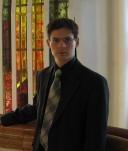|
MAIN PAGE
> Back to contents
Philosophy and Culture
Reference:
Faritov V.T.
Philosophical and Psychological Discourse about Spirit (Georg Hegel and Сarl Jung: Comparative Research)
// Philosophy and Culture.
2015. № 2.
P. 251-259.
DOI: 10.7256/2454-0757.2015.2.10635 URL: https://en.nbpublish.com/library_read_article.php?id=10635
Философский и психологический дискурс о духе (Г.В.Ф. Гегель и К.Г. Юнг: сравнительное исследование)
Faritov Vyacheslav Tavisovich
Doctor of Philosophy
professor of the Department of Philosophy at Ulyanovsk State Technical University
432027, Russia, Ul'yanovskaya oblast', g. Ul'yanovsk, ul. Severnyi Venets, 32

|
vfar@mail.ru
|
|
 |
Other publications by this author
|
|
|
DOI: 10.7256/2454-0757.2015.2.10635
Received:
19-01-2015
Published:
31-03-2015
Abstract:
In his article Faritov carries out a comparative research of Hegel's concept of spirit and Jung's psychology of collective unconscious. Faritov compares the basic conceptual provisions of Hegel's dialectics with the main concepts of Jung's teaching such as collective unconscious, persona, individuation, self and projection. Despite the fact that Jung had a quite negative attitude to Hegel's philosophy, a lot of parallels can be drawn between Jung's psychology and Hegel's philosophy of spirit. Faritov explains the contradiction between Jung's commitment to Kant's metaphysics and the presence of Hegel's motives in his psychological theory. Faritov uses conventional research methods including the method of comparative analysis. He also applies some methodological provisions of hermeneutical and post-structural approaches to analyzing texts. The result of the research is the conclusion that Jung's psychological theory, on the one hand, is oriented at the priority of facts and exclusion of philosophical speculation from the scope of research. That is why Jung seemed to be so critical about Hegel's theory. On the other hand, it tends to solve particular philosophical issues by the means of scientific discourse which leads to to the implicit presence of Hegel's philosophemes in Jung's teaching.
Keywords:
Hegel, Jung, dialectics, collective unconscious, individuation, self, archetype, discourse, spirit, transgression
References
1. Gegel' G.V.F. Lektsii po istorii filosofii. V trekh knigakh. – SPb.: Nauka, 2006.
2. Gegel' G.V.F. Lektsii po filosofii istorii. – SPb.: 1993.
3. Gegel' G.V.F. Entsiklopediya filosofskikh nauk. T. 3. Filosofiya dukha. – M.: Mysl', 1977.
4. Il'in I.A. Filosofiya Gegelya kak uchenie o konkretnosti Boga i cheloveka. – SPb.: Nauka, 1994.
5. Levit K. Ot Gegelya k Nitsshe. Revolyutsionnyi perelom v myshlenii XIX veka. Marks i K'erkegor. – SPb.: Vladimir Dal', 2002.
6. Yung K.G. Vospominaniya, snovideniya, razmyshleniya. – M.: AST-LTD, L'vov: Initsiativa, 1998.
7. Yung K.G. Psikhologiya i alkhimiya. – M.: Refl-buk, Vakler, 1997.
8. Yung K.G. O prirode psikhe. Sbornik. – M.: Refl-buk, Kiev: Vakler, 2002.
9. Yung K.G. Otnosheniya mezhdu Ya i bessoznatel'nym // Psikhologiya bessoznatel'nogo. – M.: AST; Kanon+, 2001.
10. Yung K.G. Ocherki o sovremennykh sobytiyakh // Bozhestvennyi rebenok. Analiticheskaya psikhologiya i vospitanie. – M: Olimp, AST-LTD, 1997.
11. Yung K.G. Fenomenologiya dukha v skazke // Bog i bessoznatel'noe. – M.: Olimp, AST-LTD, 1998.
Link to this article
You can simply select and copy link from below text field.
|
|

